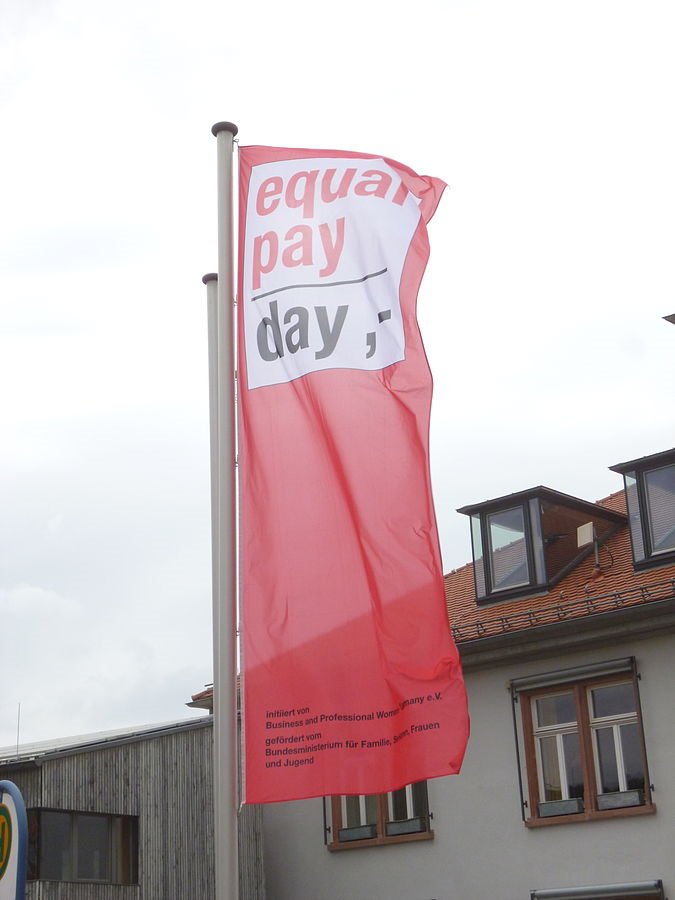Black Women's Equal Pay Day
Black Women's Equal Pay Day is the symbolic day dedicated to raising awareness of the gender pay gap for African and Black American women. In the United States, this date symbolizes how far into the year the average women must work in order to earn what the average man earns in the previous year regardless of experience or job type.[1]
African and Black American women earned $0.61, so their equal pay day was August 13. In other words, if a White male and a Black woman both started work on January 1, it would take a Black woman until August 13, to earn what a White male had earned by December 31. Black women must work an additional eight months to close the pay gap separating them and their White male colleagues.[2]
History
We are in the midst of a nationwide reckoning with racism and how it permeates nearly every institution and system of our society. But we cannot move forward without centering and listening to the voices, stories, and experiences of Black women.
The statistics mentioned: in Connecticut, Black women earn $0.57 for every dollar paid to white, non-Hispanic men. Over the course of a 40 year career, research shows that Black women in our state lose more than $1 million due to the gender wage gap. Without action, Black women won’t receive pay equity until 2130.[3]
Black women face significant barriers to entering male dominated industries that are traditionally higher paid, such as finance or STEM, especially during the hiring process. Too often, Black girls are also discouraged from studying STEM subjects at all. Research also indicates that when women enter male-dominated fields, the pay drops: one study in Cornell University[4] conducted between 1950–2000 showed that as the number of women in the workforce greatly increased, the average pay of now-female dominated industries like child care, teaching, and nursing drastically decreased.[3]
Racial Bias in Workplace
Bias is a real barrier in the workplace. One example of racial bias in the workplace is that Black applicants who use white-sounding names on resumes are more than twice as likely to be called for an interview. If managers are not intentionally challenging themselves to be inclusive, their subconscious idea of an ideal candidate is more than likely laced in bias.[5]
References
- ↑ Equal Pay Day. Retrieved January 16, 2021.
- ↑ Sankar, Carol. The State of Black Women in Corporate America. Inc.com. Retrieved January 16, 2021.
- ↑ 3.0 3.1 CT Women's Education and Legal Fund (CWEALF). On Black Women’s Equal Pay Day, Time for Action.. Medium.com. 13 August 2020. Retrieved January 16, 2021.
- ↑ Miller, Claire. As Women Take Over a Male Dominated Field the Pay Drops. NY Times. 18 March 2016. Retrieved January 16, 2021.
- ↑ Corbett, Holly. Why Black Women’s Equal Pay Day 2020 Is So Important. Forbes. 13 August 2020. Retrieved January 16, 2021.
